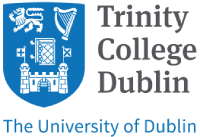Applications are invited for the following PhD studentship for the following project:
Development of Injectable Gene Activated Biomaterials for Personalised Regeneration of the Intervertebral Disc
This position will be based with the Buckley Lab (www.buckleylab.eu) within the Trinity Centre for Biomedical Engineering (TCBE) and the Advanced Materials and Bioengineering Research Centre (AMBER). Prof. Buckley leads a multidisciplinary research group in the School of Engineering at Trinity College Dublin. The goal of the Buckley lab is to develop novel biomaterial and cell-based strategies to regenerate or repair damaged tissues to restore function using minimally invasive strategies (MIS).
Summary of project
Lower back pain is a global epidemiological and socioeconomic problem. Biomaterial and cell-based therapies have been pursued for the treatment of degenerated intervertebral disc (IVD), with a number of clinical trials underway. This project envisions a future whereby advanced gene activated cell therapies are personalised (targeting regeneration or modulating inflammation) to treat back pain based on knowing the individuals unique disc microenvironment. This will be achieved through the development of tailored functionalised gene activated biomaterials, to enhance matrix formation and modulate the inflammatory processes based on the individual patient disc microenvironmental status. Gene-based therapy offers several advantages over direct delivery of proteins or small molecules, among them the possibility of sustained efficacy and endogenous synthesis of growth factors or suppression of inflammatory factors and pathways. Treatments using therapeutic nucleic acids such as micro RNAs (miRNAs) have been shown to overcome many of the limitations of growth factors (i.e. short half times, repeated injections) and improve tissue regeneration. The objective of this project is to develop non-viral injectable gene activated (miRNA/siRNA) matrices (iGAMs) to upregulate glycosaminoglycan synthesis of cell microtissues formed using bioprinting (Strategy 1) or suppress inflammatory cytokine production of resident nucleus pulposus cells in the disc (Strategy 2).
For more information please contact Prof. Conor Buckley [Email Address Removed]
Applicant criteria & eligibility: The ideal applicant will have a master’s degree in biomedical engineering, biomaterials, tissue engineering, materials science or a related discipline in engineering. Previous experience in bioprinting, hydrogels/biomaterials, tissue engineering, cell culture, PCR, biochemical analysis, mechanical testing, histology techniques would be advantageous but not essential. Excellent written and oral communication skills are essential. Applicants must have been resident in an EU member state for 3 out of the last 5 years to be eligible for funding through this programme.
How to apply: CVs with the names and addresses of three referees should be submitted via email to Prof. Conor Buckley ([Email Address Removed]) with the subject heading “ERC PhD iGAMs”. Positions will remain opened until filled but preferred start date is 1st September 2021. Only short-listed applications will be acknowledged.
Funding: This position is funded by the European Research Council (ERC)- Consolidator Award (INTEGRATE) Personalised Medicine for Intervertebral Disc Regeneration- Integrating Profiling, Predictive Modelling and Gene Activated Biomaterial and supports annual EU fees and a stipend of €18,500 per annum for 4 years.
About the Advanced Materials and Bioengineering Research Centre (AMBER): AMBER is a Science Foundation Ireland funded centre that provides a partnership between leading researchers in materials science and industry. More information can be found at http://ambercentre.ie/
About the Trinity Centre for Biomedical Engineering (TCBE): TCBE is a key research centre in Trinity College combining fundamental research with translation to clinical practice. TCBE provides a structure to bring bioengineers, basic scientists and clinicians together to focus on important clinical needs and has four key research themes: Medical Devices & Advanced Drug Delivery, Neural Engineering, Biomechanics & Mechanobiology, Tissue Engineering & Regenerative Medicine. The project work will be carried out in our state-of-the-art facilities located in the Trinity Biomedical Sciences Institute. More information can be found at https://www.tcd.ie/biomedicalengineering/

 Continue with Facebook
Continue with Facebook



